A Lot Of These Death Row Cases That Are Emerging Now ...happened Between Reagan’s “War On Drugs”

A lot of these Death Row cases that are emerging now ...happened between Reagan’s “War on Drugs” & Clinton’s crime bill. During this time police were pressured (& incentivized) to close cases, and they utilized the Racist narrative already established in this Country to target young Black Men (& Black people in general)
Systemic Racism in the Justice system means stricter sentencing laws which leads to excessive criminal sentences for Black people, that fuels more prisons (which creates a demand for prisoners) and THAT emboldened the police to abuse power. It’s a disgusting cycle that NEEDS RACISM because Racism justifies the exploitation of Black people.

Defunding The Police, Dismantling ICE Prison Abolition, and Abolishing the death penalty are the most pressing issues in our Nation.

More Posts from Skeirose and Others

Another day...


@kiarapike


Lets not get it twisted...
Black people are so tired. 😓
We can’t go jogging (#AmaudArbery).
We can’t relax in the comfort of our own homes (#BothemJean and #AtatianaJefferson).
We can't ask for help after being in a car crash (#JonathanFerrell and #RenishaMcBride).
We can't have a cellphone (#StephonClark).
We can't leave a party to get to safety (#JordanEdwards).
We can't play loud music (#JordanDavis).
We can’t sell CD's (#AltonSterling).
We can’t sleep (#AiyanaJones)
We can’t walk from the corner store (#MikeBrown).
We can’t play cops and robbers (#TamirRice).
We can’t go to church (#Charleston9).
We can’t walk home with Skittles (#TrayvonMartin).
We can’t hold a hair brush while leaving our own bachelor party (#SeanBell).
We can’t party on New Years (#OscarGrant).
We can’t get a normal traffic ticket (#SandraBland).
We can’t lawfully carry a weapon (#PhilandoCastile).
We can't break down on a public road with car problems (#CoreyJones).
We can’t shop at Walmart (#JohnCrawford) .
We can’t have a disabled vehicle (#TerrenceCrutcher).
We can’t read a book in our own car (#Keith Scott).
We can’t be a 10yr old walking with our grandfather (#CliffordGlover).
We can’t decorate for a party (#ClaudeReese).
We can’t ask a cop a question (#RandyEvans).
We can’t cash our check in peace (#YvonneSmallwood).
We can’t take out our wallet (#AmadouDiallo).
We can’t run (#WalterScott).
We can’t breathe (#EricGarner).
We can’t live (#FreddieGray).
Can’t sleep in my own bed (#Breonna Taylor)
We’re Tired
Tired of making hashtags.
Tired of trying to convince you that our #BlackLivesMatter too.
Tired of dying.
Tired.
Tired.
Tired.
So very tired.
When will it stop?
-Author Unknown
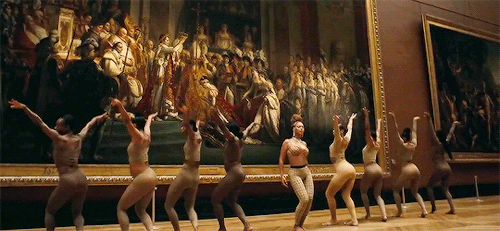
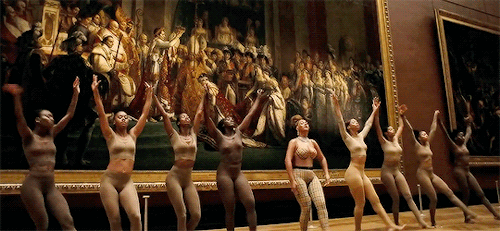
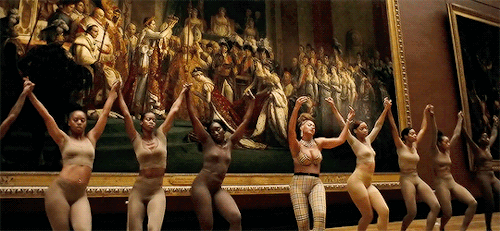
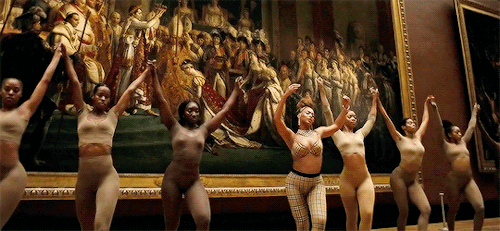
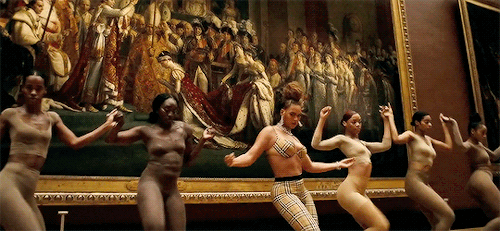
APES**T - THE CARTERS


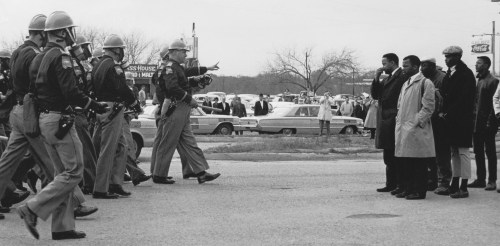
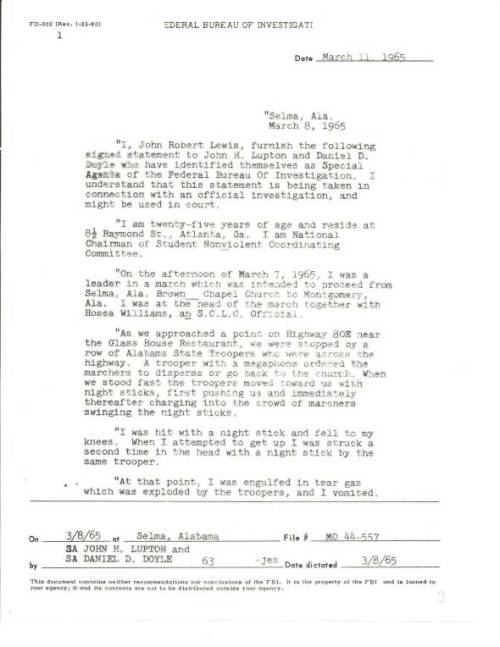

Rep. John Lewis talking with a Somali child during Operation Restore Hope, 1993 (National Archives ID 6508426)
President Barack Obama embracing Rep. John Lewis, 3/7/2015 (National Archives ID 157649496)
Photograph of the two-minute warning on Bloody Sunday, March 7, 1965. (National Archives ID 16899041)
Statement of John Lewis regarding Selma’s “Bloody Sunday,” March 8, 1965. (Records of the FBI, National Archives)
John Lewis with President Obama and others at the 50th Anniversary of the Selma March (National Archives ID 157649500)
We Remember Civil Rights Legend John Lewis
There is perhaps no single figure whose own life and career embodies the promise, success, and continued challenges of civil rights for Black Americans than John Lewis. We mourn this tremendous loss and look back on his incredible history through our holdings dating back to the early 1960s, including the March on Washington and the “Bloody Sunday” Selma March.
Hear Rep. Lewis describe his meeting with JFK before the March on Washington (from his Oral History for the JFK Library).
It was in this meeting… somehow out of the blue A. Philip Randolph says something like, “Mr. President, the black masses are restless,” in his baritone voice. “The black masses are restless, and we’re going to march on Washington.” And you could tell by the body language of President Kennedy, he just sort of moved and twisted and turned in his chair, he didn’t necessarily like what he heard. And he said, “Mr. Randolph, if you bring a lot of people to Washington, won’t there be a crisis, disorder, chaos? And we would never be able to get a civil rights bill through the Congress.” And Mr. Randolph responded and said, “Mr. President, this will be an orderly, peaceful, nonviolent protest.” And President Kennedy sort of said, “Well, I think we’re going to have problems. But we all have problems, and we can solve those problems.”
See John Lewis in The March (the film documenting the 1963 March on Washington for Jobs and Freedom, restored by the National Archives Motion Picture Preservation Lab). At 23 he was the youngest speaker that day and was the last remaining living speaker.
See also:
FBI Case File #44-28492: Bloody Sunday, Rediscovering Black History blog post by archivist Dr. Tina Ligon
Selma, Edmund Pettus Bridge FBI Case File, Rediscovering Black History blog post by archives specialist Netisha Currie
Testimony of John Lewis in Court Case resulting from 1965 March from Selma to Montgomery, Alabama
Archivist of the United States David S. Ferriero introduces Rep. John Lewis at National Archives event celebrating the 50th Anniversary of the March on Washington
Video: John Lewis on Rights and Justice in America
Several video clips show police escalating or initiating violence against peaceful demonstrators and journalists nationwide (warning: distressing)

-
 sherry593 liked this · 9 months ago
sherry593 liked this · 9 months ago -
 drew-dopamine liked this · 2 years ago
drew-dopamine liked this · 2 years ago -
 transgendercannibal liked this · 3 years ago
transgendercannibal liked this · 3 years ago -
 nymerias-heart3 reblogged this · 4 years ago
nymerias-heart3 reblogged this · 4 years ago -
 nymerias-heart3 reblogged this · 4 years ago
nymerias-heart3 reblogged this · 4 years ago -
 abandoned-eden liked this · 4 years ago
abandoned-eden liked this · 4 years ago -
 godsweakestsolider liked this · 4 years ago
godsweakestsolider liked this · 4 years ago -
 likearainbowithallofthecolours liked this · 4 years ago
likearainbowithallofthecolours liked this · 4 years ago -
 number999nine liked this · 4 years ago
number999nine liked this · 4 years ago -
 ilgil liked this · 4 years ago
ilgil liked this · 4 years ago -
 blackcatgodess reblogged this · 4 years ago
blackcatgodess reblogged this · 4 years ago -
 blackcatgodess liked this · 4 years ago
blackcatgodess liked this · 4 years ago -
 anethara reblogged this · 4 years ago
anethara reblogged this · 4 years ago -
 sleepymouseking reblogged this · 4 years ago
sleepymouseking reblogged this · 4 years ago -
 ididntexist liked this · 4 years ago
ididntexist liked this · 4 years ago -
 em578 reblogged this · 4 years ago
em578 reblogged this · 4 years ago -
 anotherwordforrecluse reblogged this · 4 years ago
anotherwordforrecluse reblogged this · 4 years ago -
 ourvisiontouchedthesky reblogged this · 4 years ago
ourvisiontouchedthesky reblogged this · 4 years ago -
 tildehummingbird reblogged this · 4 years ago
tildehummingbird reblogged this · 4 years ago -
 tildehummingbird liked this · 4 years ago
tildehummingbird liked this · 4 years ago
